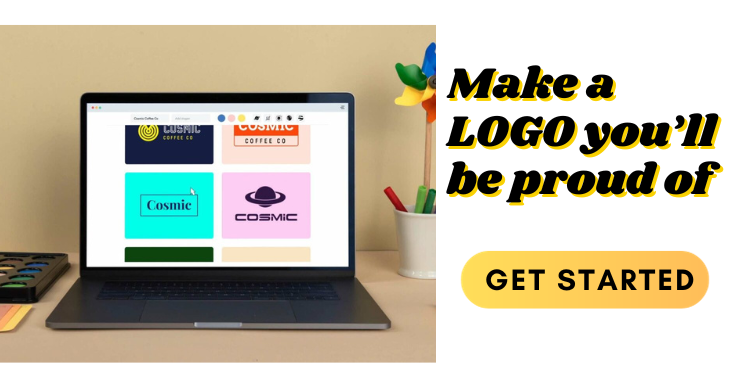What is a podcast format
Podcast formats are methods of organizing the content of your show. They provide a structure for delivering your podcast. Choosing the appropriate format ensures that your content is well-organized and easily accessible to your listeners. Without a robust format, your show will appear disorganized and chaotic.
By sticking to a podcast format, it ensures consistency for your listeners, allowing them to know what to anticipate in each new episode. If your show goes from a serious solo monologue one week to a comedic panel the next, and then a fictional story the week after, it will be difficult to retain your audience.
In addition, having a well-organized structure will enable your audience to easily explain your show to others. They can say, “It involves two individuals enjoying beer while discussing and evaluating the most recent movies” or “It consists of eight episodes that revolve around a haunted town located in New England.” Such informal advertising is crucial for the triumph of a show, thus it is important to facilitate your listeners in promoting it effortlessly.
By following a step-by-step approach, you can rephrase the given text while retaining its meaning. Ensure that no information is added or removed. Maintaining a consistent format is key as it facilitates pre-planning content by providing a clear structure for each episode.
Most popular podcast formats
In order to make a decision on the format of your show, it is beneficial to have knowledge about the approaches used by others. While it is not necessary to conform to the norms, podcasters have valid reasons for adhering to the popular podcast formats listed below. Each format has its own advantages and disadvantages. As you review the list, consider which format would be most suitable for your show.
1. The interview podcast format
An interview style show consists of one or two hosts who conduct interviews with different guests in each episode. Each guest brings their individual expertise and experience. After a short introduction of the guest, the host(s) take charge and ask questions to steer the conversation towards the specific topic of the episode, aiming to unravel the guest’s stories and lessons. Maintaining a central theme throughout the show is important to ensure its coherence due to the diverse nature of each guest.
Pros
- Your guests do most of the talking. You just have to steer the conversation.
- Listeners are forgiving about little mistakes (ums, likes, and brief pauses) because they know you’re having a legitimate conversation.
- Opens your show to a new audience because your guests promote their appearance on your show, especially to their fan base.
- Your show gains access to a variety of viewpoints and opinions, which stimulates discussion and adds value for your listener.
Cons
- This is an extremely popular format, so you’ll struggle to stand out.
- Interviewing is a skill that takes patience and practice.
- Finding a new guest for each episode takes a lot of work.
- If you interview someone over Skype or Zoom, you’re at the mercy of your connection. It may take a few tries to get enough audio for an episode.
- You have to do some deep research on your guests.
- In some sense, you rely on your guests’ ability to entertain and deliver information. Your episode will suffer if they’re difficult, inarticulate, or boring, (unless you can compensate).
2. The solo/monologue podcast format
The format of this podcast is quite popular, and it is utilized by individuals who possess a particular set of skills or knowledge that they wish to impart. There is no elaborate introduction or preparation involved; you just speak directly into a microphone. This format is commonly chosen by beginners in the podcasting world due to its simplicity. All you require to begin is a microphone and access to free editing software.
If you opt for the podcast format, you will need to determine the level of planning you want for each episode. Some podcasters are fine with improvising based on a few notes, while others struggle to speak for 30-45 minutes without thorough preparation. You might choose to create a comprehensive script for each episode.
Pros
- You don’t have to rely on anyone’s help or involvement. Everything happens on your own schedule and at your own pace.
- Your audience comes to know you intimately. This is powerful for brand building.
- Editing one voice is much easier that editing multiple tracks.
- If you don’t like how you said something, you can simply say it again and cut out the bad bits.
Cons
- It’s a lot of talking. Speaking for 30 to 45 minutes is tiring. And that’s only if you record it perfectly the first time. Realistically, you’ll talk for an hour or more for each episode.
- You don’t have anyone to bounce ideas off (unless you have a partner or team behind the scenes) or help you promote.
- If you’re nervous behind the mic, you may need to practice a bit before recording for your first episode.
3. Conversational/co-hosted podcast format
Another popular format for podcasts is when two hosts engage in a candid conversation with each other, usually displaying excellent chemistry. Unlike an interview-style podcast, both individuals in this format act as hosts.
In a lot of instances, there will be a designated role for each host in the conversation. For example, one host may be responsible for reporting news snippets, while the other focuses on providing commentary or comedy. Similarly, one host may be involved in teaching lessons, while the other shares personal stories and experiences.
Pros
- You’re only responsible for half the conversation. You might also split up all the other tasks that come with producing and promoting a podcast.
- Fans feel like they’re part of a club or group, especially when the hosts create an entertaining, friendly environment.
- It’s easy to listen to an organic conversation rather than a prepared script.
Cons
- You both need to stay on the same page regarding the purpose of each episode. There could be a conflict if you don’t agree on the overall message.
- It’s harder to edit two voices as opposed to one track.
- You have to choose topics you both know about (at least a little).
- Since each episode relies on conversation, you can’t do much scripting to prepare.
4. The panel podcast
The format of the panel or round table podcasts resembles that of interview podcasts, involving conversations with multiple hosts and encompassing both interview and discussion segments.
If you have a group of friends who share the same energy and enthusiasm, it’s an excellent choice to consider. Talking about different topics in every episode can be fantastic, especially when you have captivating guests and addictive subjects. Typically, there is a host who leads the podcast, while others have their designated tasks.
Advantages:
- It may be easy to gather an audience if you have involving topics.
- Long-time listeners may easily hook up with this format and the jokes and fun that you have during the interviewing process and in the discussion part.
Drawbacks:
- It may be hard to record the podcast considering everyone’s schedule.
- Maintaining everyone’s mood may be difficult, and the conversations may go off track.
- Different personalities may find it difficult to blend in.
5. Non-fictional storytelling podcast
If you are unsure about how to consistently generate content or find new subjects for each episode of your podcast, you can begin by exploring non-fiction podcasts. You have the option to present a real-life narrative to your listeners or provide them with the most recent news or developments connected to it.
Additionally, you have the option of presenting researched news and behind-the-scenes information to your audience in a step-by-step manner. Storytelling podcasts can also feature the personal narratives of individuals, including both your own life story and those of well-known personalities. Furthermore, you can choose to delve into investigations and provide updates on the most recent events to your audience.
Advantages:
- You won’t need to plan your content or search for new topics for every new episode.
- Taking interesting topics like some case or investigation or some mystery may keep your audience hooked with your podcast series.
- If you have very interesting stories to share and every episode comprises a new mind-blowing story, the audience will surely keep coming back to your podcast.
Drawbacks: Potential negatives:
- You may not be able to find all the minute details of the story that you have picked in the previous podcast.
- You may lack enough valid sources for the story that you have chosen to deliver.
- More planning and research is required for such types of podcast.
6. Theater/ Fictional podcast
The podcasts can be utilized to share your fictional stories with the audience, whether it be a newly created tale or an existing one. Generally, theater podcasts involve multiple podcasters due to the inclusion of different roles that need to be performed. However, it is also possible to do a solo podcast and present a fictional story.
If you have expanded your audience, you have the option to incorporate sound effects into your podcast, making it a perfect fit for those who enjoy sharing captivating tales.
Advantages:
- There is not much competition in the market for fictional podcasts.
- Interesting story plots can be addictive for the audience.
- You can bring your stories to life by giving the required sound effects and voices.
Drawbacks:
- It may require a lot of work and planning to create the required effects and storyline.
- It might be difficult to attract the audience as most of the listeners do not prefer this format.
- It can be difficult to edit the podcast as there are various plots and storylines.
7. Repurposed content podcast format
Repurposing content involves taking existing content and modifying it to increase its value. This can be done by adding to it, dividing it into smaller parts, or converting it into a different format. For example, certain bloggers repurpose written content by transforming it into an audio podcast for listeners to enjoy.
A weekly sermon of a religious organization can be converted into a podcast that can be downloaded. Lectures of a speaker can be recorded and distributed. Standup routines of a comedian can be published as recordings.
Pros
- Easy to produce this content because you already have it. You just have to do some editing to format it like a podcast.
- Since you don’t have to make the content, you don’t need a big budget.
Cons
- Since the content wasn’t originally intended for a podcast, it might not feel quite right. For instance, a lecturer might ask his audience for a “show of hands,” which obviously isn’t interactive through a podcast.
- People have other ways of getting the exact same content.
8. Educational podcast
These podcasts can take various formats, but they exclusively cater to educational topics. They are guaranteed to captivate numerous audiences seeking to acquire knowledge in a particular subject. Such podcasts are likely to encompass substantial amounts of information and intricate details.
By starting a podcast focused on education, you will always find it beneficial in gaining a comprehensive understanding of the subjects you intend to cover. You have the option to invite experts from the industry to contribute valuable insights on the topics that serve as the content for your podcasts.
Advantages / Benefits:
- Providing great insights into the topics will keep your audience hooked.
- You can also provide your audience with the supplements like pdf, free courses, or worksheets to keep them coming back for more learning material.
- You will be able to gain the upper hand in the niche that you are selected to create podcasts, as it is rightly said learning never stops.
Drawbacks:
- Without visual explanations, some topics may be challenging to teach.
- Your audience will stop listening to your podcast if you don’t provide them with the required value.
- There is great competition in the educational niche, with a number of experts trying to share their knowledge.





